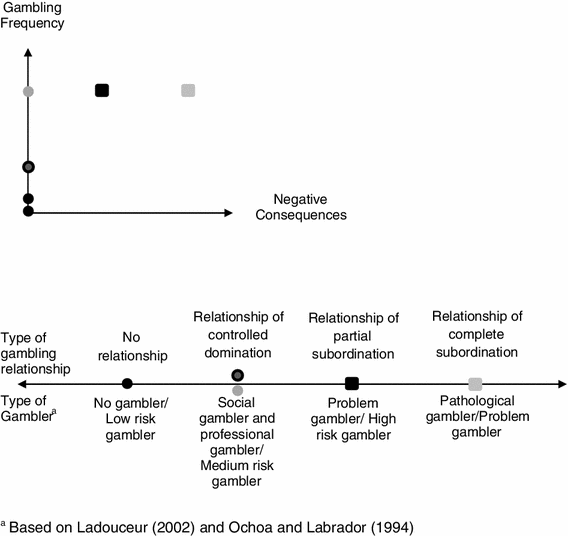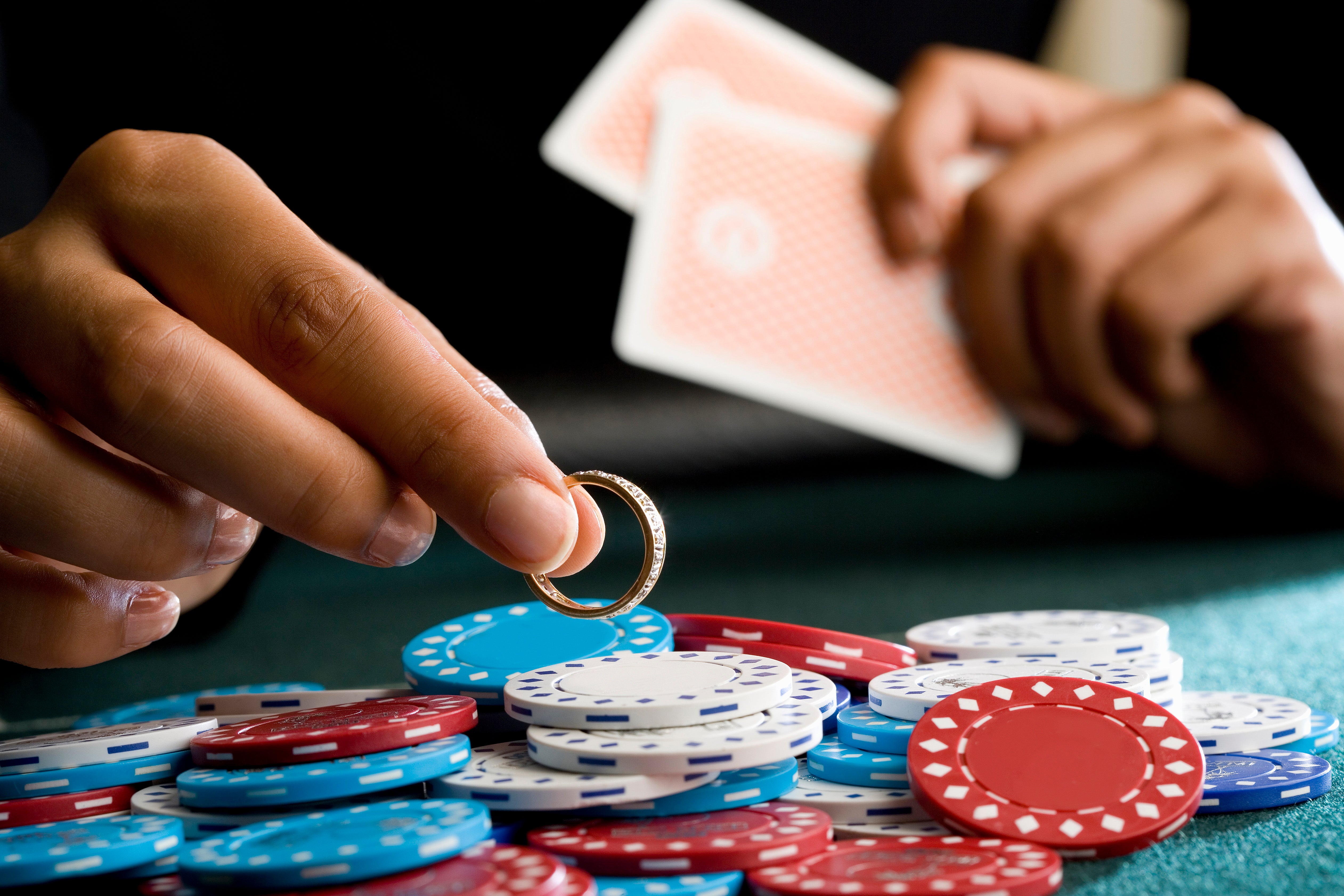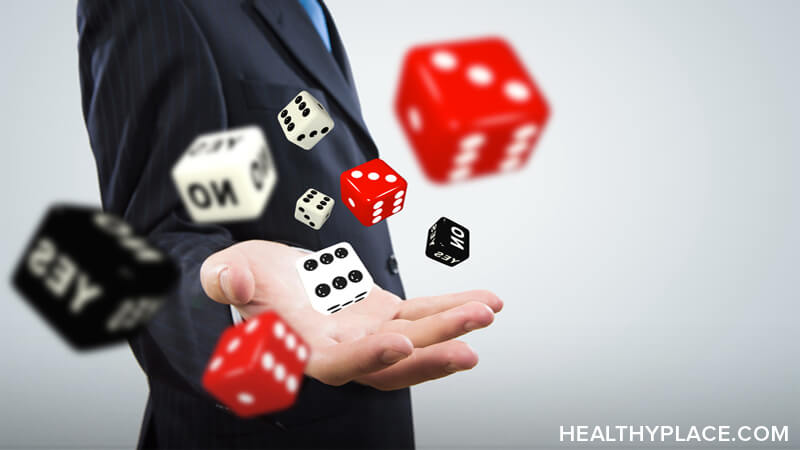Has the game become the main concern of your life? Have you forgotten other aspects such as family, work or social relationships? As you can imagine, none of that is going to bring something positive to your life.
- Compulsive Gambling Psychology Meaning Examples
- Compulsive Gambling Causes
- Compulsive Gambling Psychology Meaning Definitions
- Compulsive Gambling Psychology Meaning Dictionary
In this article, I will explain to you 7 steps to overcome and get out of gambling, return to your previous life and stop wasting your money. On the other hand, you have to keep in mind that you can do it, although you will have to persevere and be strong.
Symptoms of pathological gambling. In gambling addiction, there are no obvious physical signs, as there are in drug or alcohol addiction. In addition, gaming addicts often hide their addiction to others: they travel long distances to play and hide it from their nearby people. You may have a problem with the game if. Compulsive gambling can be helped with various forms of treatment such as Cognitive Behavioral Therapy, Self-help or Twelve-step programs, and potentially medication. However, the individual who keeps himself under constant tension and becomes increasingly anxious if he does not achieve his high goals leaves himself vulnerable to neurosis. Kleptomania is a type of impulse control disorder — a disorder that's characterized by problems with emotional or behavioral self-control. If you have an impulse control disorder, you have difficulty resisting the temptation or drive to perform an act that's excessive or harmful to you or someone else.
Compulsive Gambling Psychology Meaning Examples
What is Pathological Gambling (addiction to gambling)?
Gambling addiction or gambling addiction is the psychopathological tendency to play, in which the affected cannot resist the impulse to continue playing.
Normally, this addiction developed in three stages:
- Stage 1: earnings that seem easy are generated
- Stage 2: money is lost and you try to win it with an unrealistic optimism.
- Stage 3: destabilization of the game behavior, frustration.
Often, this addiction occurs along with mental disorders such as anxiety, depression or alcoholism and has now increased due to technology; the boom of smartphones and the internet.
Some doubts about gambling
I would like to clarify some doubts that you usually have with the problem of the game.
-You do not have to play every day to have problems with the game. You have problems with the game if that causes you problems.
-The problem is not only economic. The game can cause a relationship to break or lose important personal relationships.
-The cause of playing is not of others. Some gambling addicts blame their partners for behaving like that. Doing that is avoiding responsibility for your actions, including doing what is necessary to overcome the problem.
-The problem with the game is not overcome by paying the debts, but by overcoming the addictive behavior.
Symptoms of pathological gambling
In gambling addiction, there are no obvious physical signs, as there are in drug or alcohol addiction. In addition, gaming addicts often hide their addiction to others: they travel long distances to play and hide it from their nearby people.
You may have a problem with the game if:
– You play even when you do not have money: bets until you have lost all the money, later you want to recover using money from cards or borrowed money.
-Your family or friends care about you: it's because the game is affecting your life.

-You want to hide it: bets in secret and lie about what you bet or what you earn.
-You lose control: you are not able to leave the playing area when you lose.
How to get out of gambling?
Accept that you have problems with the game
The biggest step to take in the treatment of pathological gambling is to accept that you have problems with the game.
It takes courage and strength to do so, especially when a large amount of money has been lost or relationships have been lost along the way.
However, it is a necessary step, and many people who have overcome this problem have had to give it.
Overcoming the problem is not easy, although you can if you seek support and continue the treatment.
Make decisions and resist the temptation
Before starting the game, the decision has been made to do so.
If you have the urge to bet, stop doing what you are doing and call someone or think about the consequences of your actions. Do not pay attention to thoughts about the game and do something else immediately.
On the other hand, remember that the odds are against you. The normal thing is that you lose. Do not see the game as an opportunity to get out of your financial problems.
Some ways to control the impulse are:
- Ask the casino to stop you from entering.
- If you are addicted to online games, install a webpage blocker of this type. In extreme case, temporarily get rid of laptop/computer or smartphone, until you get over the problem.
- Postpone the game: Tell yourself that you will play 5, 15 or 60 minutes later, depending on the time you think you can control. As you wait, the urge to play can happen
- Find support: call family, friends or go to groups of people with the same problem
- Do something else: clean, go to the gym, watch a movie …
- Avoid isolation: look for new ways to build personal relationships
- Think about the consequences and how you will feel if you fall into temptation
Control your money
You can not play without money: get rid of credit cards, save and do not borrow money.
Let other people take charge of your money, have the bank make automatic payments and limit the amount of cash you can get.
Plan your time
If not times to play you will not.
Plan healthy leisure activities that have nothing to do with the game.
Avoid places related to the game
Compulsive Gambling Causes
Minimize to the maximum the possibility of playing avoiding the places nearby or that remind you of the places where you play.
Compulsive Gambling Psychology Meaning Definitions
You can also tell the establishment that you have problems with the game and ask them to restrict your entry.
Also, block your entry to betting websites. In google extensions, you have extensions that do it.
Look for other activities instead of the game
It is worth reflecting on the different ways in which you try to deal with stressful or irritating situations.
Stress,depression,loneliness or anxiety can trigger the game or make it worse.
To get rid of work or family life there are many other activities that you can have fun with.
Much healthier activities that will have positive consequences on your health are.
- Spend time with friends
- Search for new hobbies
- Exercise
- Relaxation techniques
- Read books


Practice cognitive-behavioral therapy
This therapy focuses on changing thoughts and unhealthy behaviors related to the game, such as rationalizations or limiting beliefs.
It also helps gamblers to:
- Combat the impulses that they have to play
- Treat relational problems arising after addiction
- Deal with financial or labor problems
Visiting a psychologist does not mean that you are weak or that you can not control your problems, but that you are intelligent and responsible enough to realize that you need help.
Keep the recovery

When you overcome the addiction, you may relapse again.
For this, it is essential that you establish certain healthy habits that replace the game:
Play online casino games with Sven-play. Play the best slots, roulette games, progressive jackpots and more. Join and check our promotions! Casino nyc.
- To relax sports, relaxation techniques, meditation or massages.
- To socialize: learn social skills, find new friends, go to an NGO, sign up for classes in some activity …
- Loneliness or boredom: finding a new passion like sports, music, art, books …
Seek help from associations or organizations in your country
It is very likely that in your country or city there are organizations specialized in helping people who have problems with the game. They have experience and they will know how to advise.

-You want to hide it: bets in secret and lie about what you bet or what you earn.
-You lose control: you are not able to leave the playing area when you lose.
How to get out of gambling?
Accept that you have problems with the game
The biggest step to take in the treatment of pathological gambling is to accept that you have problems with the game.
It takes courage and strength to do so, especially when a large amount of money has been lost or relationships have been lost along the way.
However, it is a necessary step, and many people who have overcome this problem have had to give it.
Overcoming the problem is not easy, although you can if you seek support and continue the treatment.
Make decisions and resist the temptation
Before starting the game, the decision has been made to do so.
If you have the urge to bet, stop doing what you are doing and call someone or think about the consequences of your actions. Do not pay attention to thoughts about the game and do something else immediately.
On the other hand, remember that the odds are against you. The normal thing is that you lose. Do not see the game as an opportunity to get out of your financial problems.
Some ways to control the impulse are:
- Ask the casino to stop you from entering.
- If you are addicted to online games, install a webpage blocker of this type. In extreme case, temporarily get rid of laptop/computer or smartphone, until you get over the problem.
- Postpone the game: Tell yourself that you will play 5, 15 or 60 minutes later, depending on the time you think you can control. As you wait, the urge to play can happen
- Find support: call family, friends or go to groups of people with the same problem
- Do something else: clean, go to the gym, watch a movie …
- Avoid isolation: look for new ways to build personal relationships
- Think about the consequences and how you will feel if you fall into temptation
Control your money
You can not play without money: get rid of credit cards, save and do not borrow money.
Let other people take charge of your money, have the bank make automatic payments and limit the amount of cash you can get.
Plan your time
If not times to play you will not.
Plan healthy leisure activities that have nothing to do with the game.
Avoid places related to the game
Compulsive Gambling Causes
Minimize to the maximum the possibility of playing avoiding the places nearby or that remind you of the places where you play.
Compulsive Gambling Psychology Meaning Definitions
You can also tell the establishment that you have problems with the game and ask them to restrict your entry.
Also, block your entry to betting websites. In google extensions, you have extensions that do it.
Look for other activities instead of the game
It is worth reflecting on the different ways in which you try to deal with stressful or irritating situations.
Stress,depression,loneliness or anxiety can trigger the game or make it worse.
To get rid of work or family life there are many other activities that you can have fun with.
Much healthier activities that will have positive consequences on your health are.
- Spend time with friends
- Search for new hobbies
- Exercise
- Relaxation techniques
- Read books
Practice cognitive-behavioral therapy
This therapy focuses on changing thoughts and unhealthy behaviors related to the game, such as rationalizations or limiting beliefs.
It also helps gamblers to:
- Combat the impulses that they have to play
- Treat relational problems arising after addiction
- Deal with financial or labor problems
Visiting a psychologist does not mean that you are weak or that you can not control your problems, but that you are intelligent and responsible enough to realize that you need help.
Keep the recovery
When you overcome the addiction, you may relapse again.
For this, it is essential that you establish certain healthy habits that replace the game:
Play online casino games with Sven-play. Play the best slots, roulette games, progressive jackpots and more. Join and check our promotions! Casino nyc.
- To relax sports, relaxation techniques, meditation or massages.
- To socialize: learn social skills, find new friends, go to an NGO, sign up for classes in some activity …
- Loneliness or boredom: finding a new passion like sports, music, art, books …
Seek help from associations or organizations in your country
It is very likely that in your country or city there are organizations specialized in helping people who have problems with the game. They have experience and they will know how to advise.
Do not be ashamed to call them, they have hundreds of cases like yours and their will is to help people overcome gambling and rebuild their lives.
What are your problems with the game? Are you a gambler or do you want to help someone? I'm interested in your opinion to Thank you!
Compulsive gambling is being unable to resist impulses to gamble. This can lead to severe money problems, job loss, crime or fraud, and damage to family relationships.
Compulsive gambling most often begins in early adolescence in men, and between ages 20 and 40 in women.
People with compulsive gambling have a hard time resisting or controlling the impulse to gamble. The brain is reacting to this impulse in the same manner it reacts to a person addicted to alcohol or drugs. Although it shares features of obsessive compulsive disorder, compulsive gambling is likely a different condition.
In people who develop compulsive gambling, occasional gambling leads to a gambling habit. Stressful situations can worsen gambling problems.
People with compulsive gambling often feel ashamed and try to avoid letting other people know about their problem. The American Psychiatric Association defines pathological gambling as having 5 or more of the following symptoms:
- Committing crimes to get money to gamble.
- Feeling restless or irritable when trying to cut back or quit gambling.
- Gambling to escape problems or feelings of sadness or anxiety.
- Gambling larger amounts of money to try to make back past losses.
- Losing a job, relationship, education, or career opportunity due to gambling.
- Lying about the amount of time or money spent gambling.
- Making many unsuccessful attempts to cut back or quit gambling.
- Needing to borrow money due to gambling losses.
- Needing to gamble larger amounts of money in order to feel excitement.
- Spending a lot of time thinking about gambling, such as remembering past experiences or ways to get more money with which to gamble.
A psychiatric evaluation and history can be used to diagnose pathological gambling. Screening tools such as the Gamblers Anonymous 20 Questions www.gamblersanonymous.org/ga/content/20-questions can help with the diagnosis.
Treatment for people with compulsive gambling begins with recognizing the problem. Compulsive gamblers often deny they have a problem or need treatment.
Compulsive Gambling Psychology Meaning Dictionary
Most people with pathological gambling only get treated when other people pressure them.
Treatment options include:
- Cognitive behavioral therapy (CBT).
- Self-help support groups, such as Gamblers Anonymous. Gamblers Anonymous www.gamblersanonymous.org/ is a 12-step program similar to Alcoholics Anonymous. Practices used to treat other types of addiction, such as substance use and alcohol use, can also be helpful in treating pathological gambling.
- A few studies have been done on medicines for treating compulsive gambling. Early results suggest that antidepressants and opioid antagonists (naltrexone) may help treat the symptoms of pathological gambling. However, it is not yet clear which people will respond to medicines.
Like alcohol or drug addiction, pathological gambling is a long-term disorder that tends to get worse without treatment. Even with treatment, it's common to start gambling again (relapse). However, people with pathological gambling can do very well with the right treatment.
Complications may include:
- Alcohol and drug use problems
- Anxiety
- Depression
- Financial, social, and legal problems (including bankruptcy, divorce, job loss, time in prison)
- Heart attacks (from the stress and excitement of gambling)
- Suicide attempts
Getting the right treatment can help prevent many of these problems.
Call your health care provider or mental health professional if you believe you have symptoms of pathological gambling.
Exposure to gambling may increase the risk of developing pathological gambling. Limiting exposure may be helpful for people who are at risk. Intervention at the earliest signs of pathological gambling may prevent the disorder from getting worse.
Gambling - compulsive; Pathological gambling; Addictive gambling
American Psychiatric Association website. Non-substance-related disorders. In: American Psychiatric Association. Diagnostic and Statistical Manual of Mental Disorders. 5th ed. Arlington, VA: American Psychiatric Publishing. 2013:585-589.
Balodis IM, Potenza MN. The biology and treatment of gambling disorder. In: Johnson BA, ed. Addiction Medicine: Science and Practice. 2nd ed. Philadelphia, PA: Elsevier; 2020:chap 33.
Weissman AR, Gould CM, Sanders KM. Impulse-control disorders. In: Stern TA, Fava M, Wilens TE, Rosenbaum JF, eds. Massachusetts General Hospital Comprehensive Clinical Psychiatry. 2nd ed. Philadelphia, PA: Elsevier; 2016:chap 23.
Updated by: Fred K. Berger, MD, addiction and forensic psychiatrist, Scripps Memorial Hospital, La Jolla, CA. Also reviewed by David Zieve, MD, MHA, Medical Director, Brenda Conaway, Editorial Director, and the A.D.A.M. Editorial team.